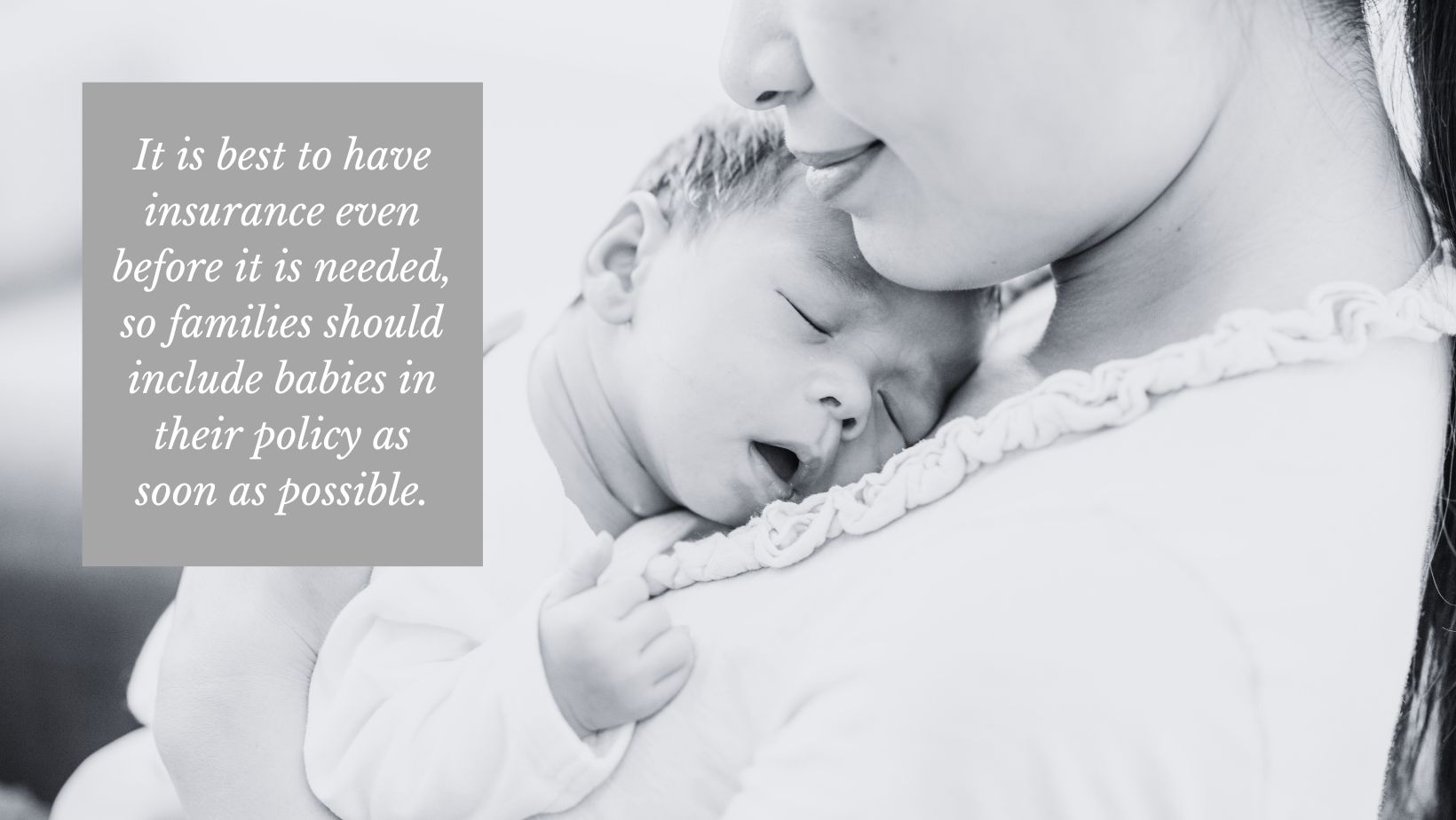If you are a parent you might wonder if newborns need dental insurance. What is the best time to get your child on your dental insurance policy? And if you don’t have a policy, is it worth getting one?
Good oral health contributes to a higher quality of life no matter the age. Dental health care is essential for everyone, even babies. As soon as your little one’s teeth start to appear, it’s time to start thinking about their oral health and trips to the dentist. Including your newborn on your health insurance policy will help you pay for both routine preventive care and emergencies as your child grows.
Why Is Dental Care Important for Babies?
Seeing a dentist early can start good oral hygiene practices. For the parents, it is a chance to learn best practices for taking care of the baby’s oral health. It is also an opportunity to check in on the child’s growth and development, and to get advice about problems such as thumbsucking or speech issues.
And even though baby teeth eventually fall out, they are a good indicator of potential problems later on. It’s just as important to protect baby teeth as it is to safeguard adult teeth.
Baby Teeth and Fillings
Centers for Disease Control and Prevention, the CDC, states “Cavities (also known as caries or tooth decay) are the most common chronic disease of childhood in the United States. Untreated cavities can cause pain and infections that may lead to problems with eating, speaking, playing, and learning. Children who have poor oral health often miss more school and receive lower grades than children who don’t.”
When tooth decay and cavities go untreated the child can develop an infection which, in the worst cases, can spread to other areas of the body. It can also spread beneath the gumline to permanent teeth. Sometimes a filling or crown is necessary. Procedures like baby cavity fillings are covered under insurance. This is a big reason to have children covered under insurance and treated by a pediatric dentist.
Sealants and Baby Teeth
Insurance may also pay for dental sealants which are a popular option to avoid cavities. They are especially helpful if a child’s teeth have deep grooves and spacing between teeth where there is a higher chance of developing cavities. Sealants can also be applied to teeth that already show decay and can help mitigate further decay by providing that extra protective layer.
What Does Pediatric Dental Insurance Cover?
Dental insurance benefits include four major categories and this extends to any age, including pediatric dental services.
- Preventive/basic: cleanings and checkups.
- Routine: cavity fillings, x-rays, and exams.
- Major: crowns, root canals, oral surgery.
- Orthodontia: braces to help align the bite, and straighten teeth.
Pediatric dental plans also cover emergency dental care. Depending on the type of insurance, out-of-pocket costs will vary per procedure.
While many of these services won’t be needed for a newborn, they will become more necessary as the child grows. Having them on the insurance policy as soon as possible will avoid a coverage gap where a big expense might occur.
Adding Children to Your Dental Insurance Policy
It is best to have insurance even before it is needed, so families should include babies in their policy as soon as possible. A child’s first dental visit should occur by their first birthday or within six months after the first tooth comes in. During this visit, a pediatric dentist can provide guidance on oral care, teething, and the baby’s development.
As the baby grows and becomes more active and starts eating new foods, they will already be covered for possible dental problems like broken teeth or tooth decay. Children need to be on a dental insurance policy before any of these things occur to ensure they are covered.

Family Dental Insurance and Additional Options
When a family’s insurance plan includes dental coverage, there is no reason not to add the child right away. If the family insurance does not include dental, there are other options for getting coverage.
- Embedded plans include dental coverage along with all other health benefits at no extra cost.
- Bundled plans offer different types of insurance (typically dental and vision) sold separately by the same carrier as add-ons to a basic health insurance policy. People get to choose which options to add to their bundle.
- Stand-alone plans are purchased by themselves, separate from a health plan. They may be available through a medical carrier, or from a stand-alone dental insurance carrier.
Get Help With Your Child’s Dental Care
As your children grow their dental needs will increase. It is best for you to add your newborn to your family insurance dental plan as soon as you can, even before they need care. This way they’ll be covered when it is time for their first dental appointment.
If you need to get your child on the path to good dental care, you can find a dentist through the Dental Health Society, and make an appointment with one who accepts your insurance.


